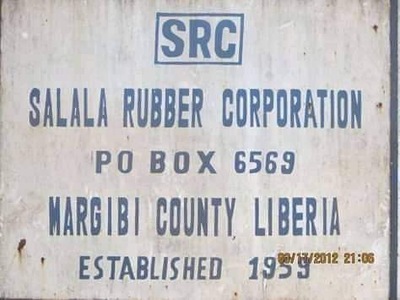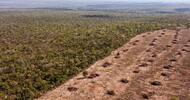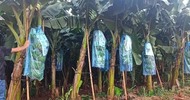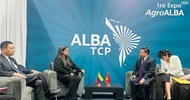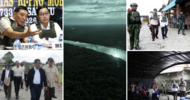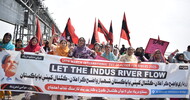Women's TV Liberia | 10 June 2024
Alleged Sale of SRC Sparks Concern Amid Court Case: Affected Communities Want Government Intervene
By: Jeremiah Sackie Cooper Gmail: [email protected]
Weala, Margibi — The alleged plan for the sale of the Salala Rubber Corporation (SRC) by its parent company Socfin, has raised concerns among civil society organizations and communities affected by the operations of the company amid the ongoing lawsuit for forcefully taking local community land to extend their rubber plantations.
In its 2023 annual report, Socfin disclosed that SRC was deemed impaired, valuing this impairment at 7.5 million euros and reclassifying the plantation as an asset for sale.
The report quotes “As of 31 December 2023, the carrying amounts of the assets classified as held for sale and related liabilities are attributable to SRC. In the last quarter of 2023, the management of Socfin conducted negotiations on the disposal of SRC. Accordingly, SRC was reclassified as a disposal as of 31 December 2023. The transaction is subject to local regulatory approval and is expected to close in the first half of 2024’’.
However, since the announcement by Socfin, Civil Society Organizations, and local communities affected by the alleged expansion of the SRC plantation have been frustrated over the company’s refusal to wait for the outcome of an ongoing court case filed against the company by the affected communities through Green Advocates International, a human and environmental rights organization.
SRC has been in a legal battle with the affected communities for land grabbing, destruction of cultural sites, and sexual and gender-based violence since 2018.
To get redress on the matter, a coalition of Liberian, West African, and international civil society organizations along with local communities are calling on the government of Liberia to intervene in the planned sale of the Salala Rubber Corporation.
In their letter to the Liberian government, they noted that there are unresolved social environmental, and human rights issues tied to the company’s operation; exposing potential buyers to risks.
The CSO groups and affected communities want Socfin, and prospective purchasers, to outline the extensive liabilities that any new owner of SRC would inherit, including the widespread land, environmental, and human rights violations linked to the 8,000-hectare rubber plantation near Weala, Liberia.
‘’We, the undersigned, are Liberian, West African, and international civil society organizations, communities, and individuals concerned with the legacy of harm that the operations of the Salala Rubber Corporation (SRC) have foisted on local communities in and around Weala, Liberia. We are alarmed by news that SRC’s parent company, Socfin, is seeking to divest its shares in SRC without first settling its social, environmental, cultural, financial, and economic debts to affected communities. We, therefore address this open letter to the Liberian government, Liberia’s development partners, the public, Socfin, and, particularly, all prospective purchasers of SRC’’
Any purchaser will inherit extremely significant liabilities connected to the widespread land, environmental, and human rights violations associated with SRC’s rubber plantation. The purchaser will also receive a concession based on insecure title to the land on which the plantation sits. We, therefore call on all stakeholders – SRC’s parent company, Socfin; investors; financiers; the Government of Liberia; and all prospective buyers – to desist from any sale or assignation of rights until the complaints against SRC are resolved and the rights to the land upon which the concession for the rubber plantation was granted are conclusively determined’’.
They also said that the plantation’s expansion over the years has displaced numerous local communities, leading to significant socio-economic and cultural disruptions.
In their letter, they revealed serious human rights violations stemming from the plantation’s operations. It notes that at least 37 villages have lost farmland, leading to poverty, food insecurity, and cultural dislocation.
Testimonies from affected communities describe harassment and exploitation, particularly of women, by SRC employees.
Investigations by various organizations, including Green Advocates International and Bread for All, have substantiated these claims, highlighting failures in compensating affected communities and addressing their complaints.
Residents claim the land was not public as required for the concession, but rather under customary use by local Kpelle communities.
At the same time, the CSO coalition has made several recommendations to ensure any sale respects the rights and interests of local communities.
They want the community consent obtained before the sale and actively participate in consultations through the Community Land Development and Management Committee to protect their rights
The CSO groups emphasized the importance of addressing these issues to avoid repeating mistakes seen in other regions, such as the Niger Delta, where divestment by international companies has left local communities to bear the brunt of unresolved environmental and social problems.


